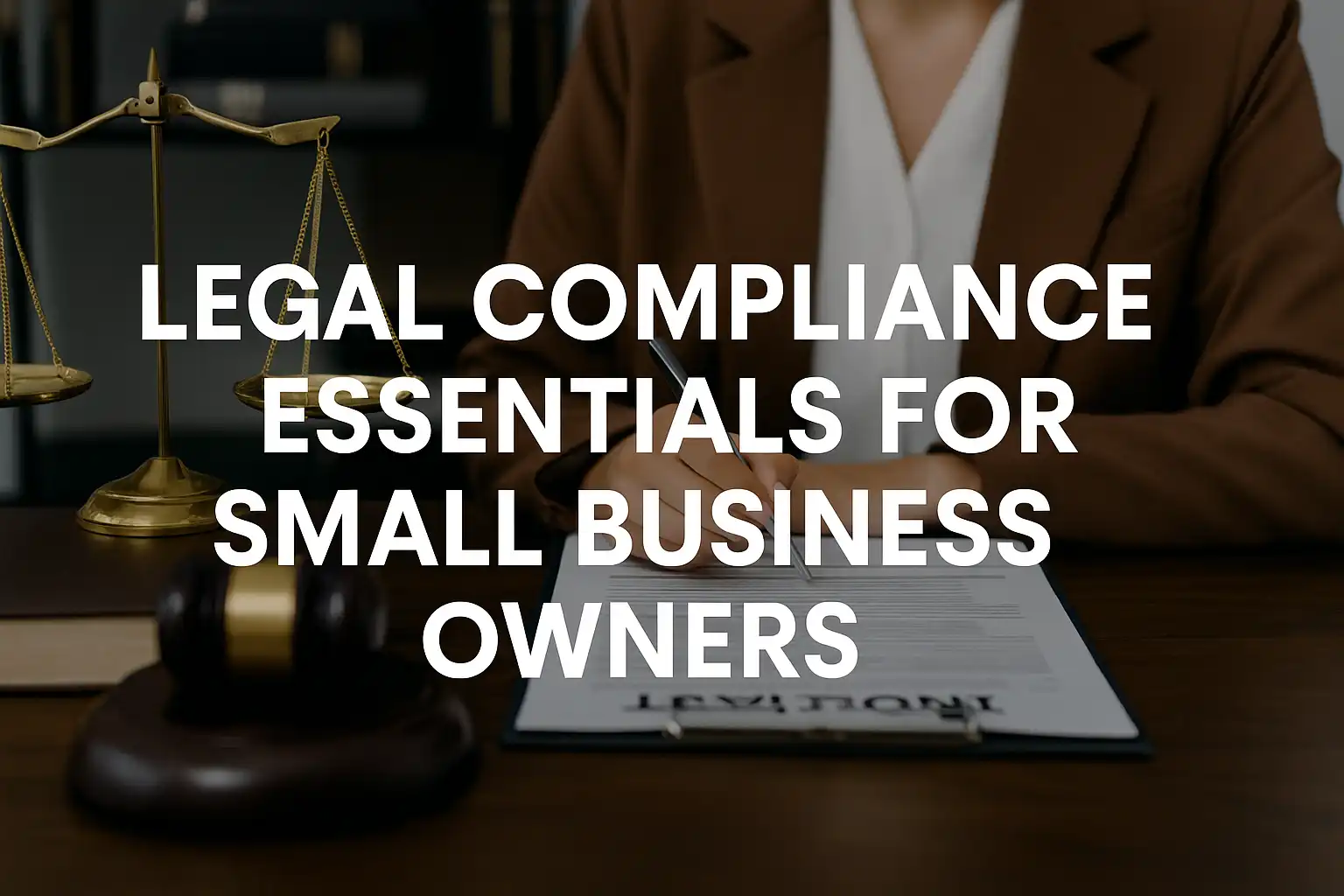Legal Compliance Essentials for Small Business Owners: A Complete Guide
Introduction
Running a small business involves more than offering great products and services—it also requires strict compliance with legal regulations. From employment laws to data privacy and tax requirements, non-compliance can lead to costly penalties and reputational damage. This comprehensive guide outlines the key areas small business owners need to focus on to remain legally compliant and safeguard their business.
Why Legal Compliance Matters for Small Businesses
Compliance is not optional. Laws and regulations are in place to protect employees, customers, and businesses. Following these guidelines reduces the risk of lawsuits, financial loss, and government audits. For additional resources, visit SBA Compliance Guide.
Top Compliance Areas Small Businesses Must Address
1. Employment and Labor Laws
Understand wage regulations, overtime requirements, and anti-discrimination laws. Failure to comply with labor laws can lead to significant fines. Learn more at the U.S. Department of Labor.
2. Business Licenses and Permits
Check local, state, and federal requirements for licenses and permits. These vary by industry, so research carefully before starting operations.
3. Tax Compliance
Ensure timely filing of federal, state, and local taxes. Maintain accurate records and consult a tax professional to navigate deductions and credits. More information is available at the IRS Small Business Portal.
4. Data Privacy and Cybersecurity
With increasing cyber threats, safeguarding customer data is a legal necessity. Implement secure data storage practices and comply with applicable laws such as GDPR or CCPA if relevant to your operations.
5. Workplace Safety
Even small businesses must provide safe working environments. Follow OSHA guidelines to avoid workplace hazards. Access resources at OSHA.
Practical Tips for Staying Compliant
- Create a compliance checklist and update it regularly.
- Invest in legal software or consult with a business attorney.
- Train employees on workplace policies and compliance standards.
- Keep accurate records for audits and legal reviews.
Common Mistakes to Avoid
Ignoring changing regulations, skipping employee training, and failing to maintain documentation are frequent errors that put businesses at risk. Avoid these by establishing a proactive compliance culture in your organization.
Conclusion
Compliance is a continuous process, not a one-time task. By staying informed and implementing strong internal policies, small business owners can protect their companies, employees, and customers from legal pitfalls. Start by reviewing your current practices and addressing any gaps immediately.
Read next: Understanding Recent Changes in Employment Law and How They Impact Your Business
